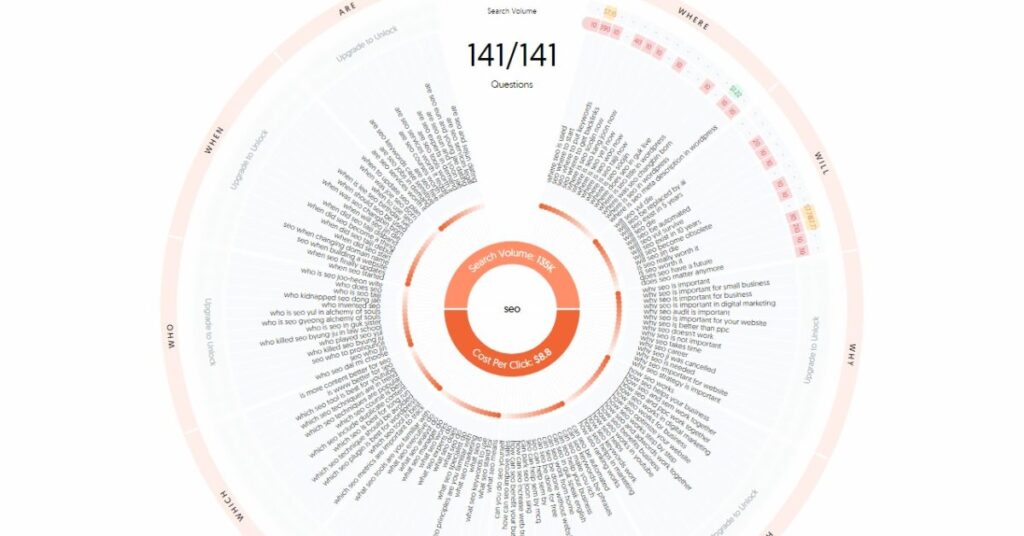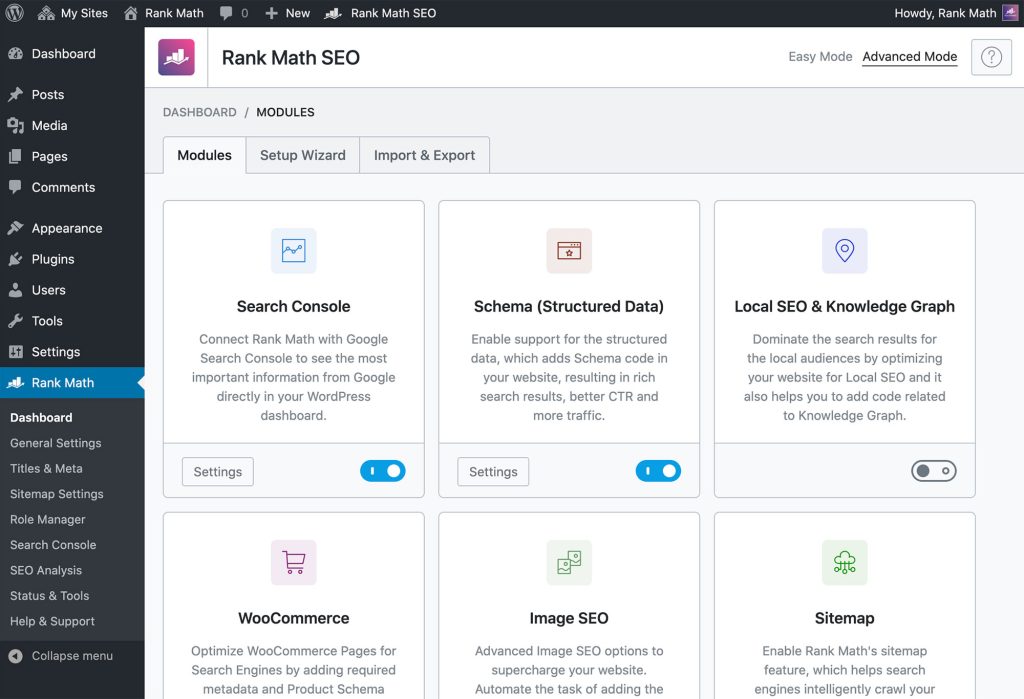How to Get More Website Traffic & Leads

As a small business owner or marketer, your main goal is to obtain more leads and grow your business. In 2023 it’s very common for buyers to research and often make a purchase decision via online research before they ever reach out to you. So, the question is, how do you get more website traffic to generate more leads?
While there are many ways to increase website traffic, in today’s post, we are going to share techniques which have proven effective to our business over the years as well as new tips, many of which are completely free.
It’s all about content, content, content!!! Your website needs to be packed with relevant, fresh content for the audience that you want to attract. Content marketing is so powerful that 79% of content marketers use content as their primary means of generating leads. Think Search Engine Optimization (SEO). What questions are people searching for within your industry and how can you answer those questions?
With all the noise of the internet, how do you know what people are talking about? What concerns keep them up at night? What influences them to want to buy your product or service? Well, you’re in luck. There are free tools available on the web to help you quickly see what people are searching for based on your topic, brand or product and within your location. Our favorite is Answer the Public as it’s easy to use and provides multiple layers of search topics. This allows you to find a question that fits your particular niche and create content that is timely and specific to your business.
 SEO Search Example from Answer the Public
SEO Search Example from Answer the Public
Once you determine what your audience cares about and is searching for answers to, you will need to create unique content to answer that question. The primary place on your website to answer these questions should be in the form of a blog. Blogs are important to attracting and retaining customers that we rank this our #1 way to drive website traffic and generate leads.
In 2023, Web Tribunal reports that there are more than 600 million blogs out of 1.9 billion websites worldwide. And 80% of bloggers state that blogging drives website traffic. This is largely due to Search Engine Optimization (SEO).
How Does Search Engine Optimization Drive Website Traffic?
When generating website content in the form of a blog, there are a few factors you need to keep in mind so that you have a better chance of people finding your content and reading it. This is done by Search Engine Optimization, commonly referred to as SEO.
SEO is the built in content on your website and blog and Google and other search engines crawl for to return results when someone searches for a specific term or question on a search engine. To write a blog that is rich in SEO there are a few things to keep in mind.
Word Count
The is a moderate correlation between content length and organic website traffic. This has a lot to do with a person’s attention span. There is a ton of research for this topic and it’s easy to find yourself down a research rabbit hole. Here is a simple reference guide to remember.
More than 2500 words: Exceptional! You’re Showing You’re the Expert!!!
2000-2500 words: Great Work!
1500-2000 words: Now You’re Talking!
1000-1500 words: Good Job!
600-1000 words: Keep Going, You’re Getting Close!
Below 600 words: Not SEO Compliant
Internal Links and External Backlinks
While a reader might initially find your blog via a search engine and that blog will likely answer their initial question, it could also spark interest in another related topic. Your goal in your blogs and your overall website experience is to continue to answer their questions and pique their interest. This creating a connection that is very powerful in their decision to buy from you vs someone else in your industry. This is where internal and external links become very important.
Your internal content should link to new and older content like a spider web. Think connecting the dots with related content, not the same content. Your blog can contain multiple internal links, ideally two or three, but at the very least one.
External links are equally important, but kind of tricky. Your goal is to provide at least one external link to content outside of your website that is relevant, but you want to be selective in where you link to as you don’t want to point your reader away to a site that answers more of their questions than yours did. Strong external links are those that are a different type of resource that is complementary to your product or service. Something that elevates your presence in your market.
For example, if you are a concrete setter you might link to a concrete pumping service that you work with often but that does not do what you do. Instead, they elevate your service. If you are a marketing company that develops websites, you might link to a graphic designer that you work with. Ideally, the business you are linking to is also blogging and you are linking to content that complements and links back to one another. These further builds rapport with your audience that you are both knowledgeable in this market and trust one another.
Use Images and Video in Your Posts
Humans are sensory creatures. And everyone likes to learn in a different way. As such, your blog should touch as many of these senses as possible to spark interest in your product or service. The use of images and videos is an easy way to do this.
As the expert in your field, you know the answer to the topic you are writing about it. So why not also show the answer to the question in a video. Either by you demonstrating the solution or just talking to the consumer so they can get some face time. If video isn’t relevant to your particular product or solution, you can also achieve this connection via images.
Blogs that contain a combination of seven or more images and videos are 2.3x more likely to report strong results, according to Orbit Media.
Creating New Content Often Aids in Building Website Traffic
Now that you know how to find questions your audience is asking, how to write a blog that is built for SEO, it’s time to understand how often you should be blogging to drive continual website traffic. Orbit Media reports that bloggers who publish two to six times a week are 50% more likely to report strong results.
Publishing new and updated content more frequently produces more website traffic as it floods your niche market with relevant content. Consider how many questions you ask a day about your family, home, work, or just new things you are curious about. Do you dream about your next vacation or are you curious about an upcoming concert or sporting event? Chances are very very high that you go online and search about it. Your prospective customers are doing the same thing about your product and service. Your goal is to continually be there to answer those questions with the latest knowledge you have about your product or service.
SEO Tools that Integrate with WordPress
WordPress is the most common platform for website and blogs. It’s a very powerful platform for building a unique website that will set your business presence online apart from the competition and it allows for a variety of plugins both free and paid to make it unique.
One tool that we highly recommend to get your content found on search engines is an SEO tool. The tool we like most is RankMath. It’s 1.9 million happy users speaks volumes for itself, but the platform easily integrates with WordPress and uses a simple scoring system with direct action items to help you understand how to improve your blog content. An SEO tool like RankMath makes it easy to achieve SEO results even from the most amateur of bloggers.
 RankMath WordPress Integration Example
RankMath WordPress Integration Example
Yes, it still works!!! Email marketing has become a very mainstream marketing method over the past few years. With a variety of platforms to send mass email marketing campaigns that range from free to subscription based, there are an infinite number of ways to set yourself apart as an email marketer.
Email marketing is a great way to share a short snippet of urgent product or service news, a monthly newsletter, a new product or service announcement, or generally educating your prospect or consumer. Whatever the message, it’s important to keep your email message short and to the point and link to your website.
The overall purpose of email marketing should be to drive website traffic and further connect with your prospect or customer. Most of us have a very noisy email box so your content should spark interest, keep their attention and encourage them to stop what they are currently doing and act on your message. Which means it must be relevant and timely. Here is a good reason to once again know what questions your customer or prospect is potentially asking at that moment.
Using Direct Mail or Postcards to Drive Website Traffic
Yes, we said it. Use a physical piece of paper to drive website traffic.
We’ve already established that our email is a noisy environment. And as such, people are once again craving the ability to touch and read. Direct mail in the form of a letter, postcard or flyer also touches yet another sense that humans crave.
In our experience in B2B and B2C, people will hold onto a piece of direct mail that sparks interest for sometimes over a year! Yes, I said a year! That’s powerful marketing. During this time a prospect might visit your website several times to watch and learn about you, so they feel confident in your abilities when they are ready to buy.
Your website shows people who you are and builds confidence. This applies to every business, product or service, in every industry. People want to buy from people they know and trust.
As you can see there are a lot of traditional marketing tactics that can drive website traffic such as, postcards, newsletters, blogs and SEO. Nothing fancy here, just good old fashion marketing with new fancy content techniques. That’s the trick to more leads…build it, tell them, and build rapport with them every chance you get.
Does it work for Bancorp? You bet, this year 20% of our new leads came from our website. That’s no small number by the way well over 200 leads. People are looking on the internet for information. They do their research online before they buy. Point them where to go, tell them how to find out about you!
Bancorp’s insurance agents are available to provide you with a free review and consultation. Contact Us – Bancorp Insurance Call 800-452-6826
Disclaimer: This content is provided for general information purposes and is not intended to be used in place of consultation with our agents.



